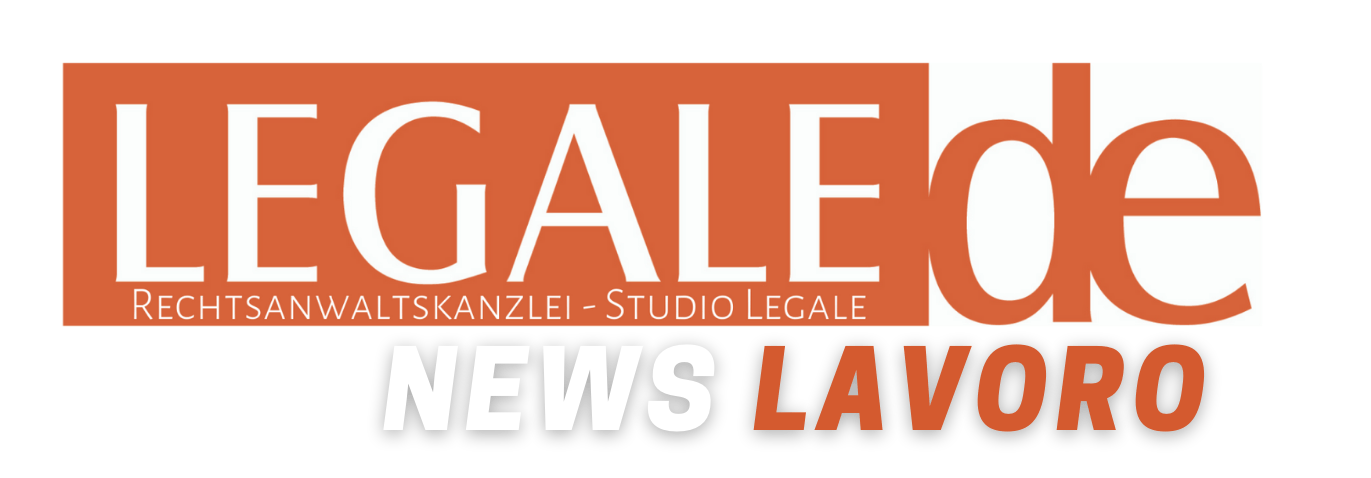RECORDING THE AMOUNT OF TIME WORKED
According to a 2019 ruling by the European Court of Justice, member states must require employers to set up an objective, reliable and accessible system for measuring the daily working time of each employee. However, the German government has not yet adopted a national regulation.
Courts interpret the ruling in different ways. In some decisions, the ruling has a direct effect on the employer, who must record working time accordingly. In other decisions, the courts see it more as a recommendation to the legislator. As a result of these different views, disputes may result in large back pay claims, such as overtime pay.
In this context, it may make sense for employers to consider a pragmatic and business-friendly time and attendance system.
MINIJOB INCREASE TRANSITION PERIOD
For a transitional period, extended from 1.6. to 31.10.2021, it is temporarily possible to exceed the monthly income limit in a minijob four times. An employee can then earn more than 450 euros in some months.
However, this only applies to periods of work after the transitional rule comes into effect. For earlier periods, there is still the possibility of not exceeding the earnings limit three times.
If a minijob worker earns more than originally expected in the calendar months from June to October 2021 after June 1, 2021, it will be necessary to check how often this happened in the previous year (12-month period). The 12-month period always ends at the end of the calendar month in which an unforeseeable overshoot occurs and begins 12 months earlier. If the earnings limit is not exceeded predictably for a maximum of 4 calendar months in the 12-month period, it is considered an occasional overage and therefore still a minijob.
Example: A minijob worker who works from 1/1/2020 for a monthly salary of €440. From 1.7. - 31.8.2021 he replaces a full-time employee due to illness. In July and August 2021, the earnings increase to €1,500 per month. Since the mini-jobber already replaced a full-time employee in September and December 2020, the €450 limit was exceeded in those months as well. The worker's employment also remains a minijob for the period July 1 through August 31, 2021, because the earnings limit was not expected to be exceeded in a maximum of 4 calendar months during the 12-month period in question.
INTERPRETATION OF TIME LIMITS
Short-term work is defined as work that is limited to a maximum of 3 months or 70 working days in a calendar year. Previously, the 3-month limit applied if the work was performed at least 5 days per week; if the work was performed 4 or fewer days per week, the 70-workday limit applied. The German Federal Social Court (Bundessozialgericht - BSG) has now decided in its ruling of 24.11.2000 that the time limits should be evaluated in the same way. Thus, employment relationships are short-term regardless of the number of working days per week if they are exercised for more than 3 months (1.3. - 31.10.2021 = 4 months), but not more than 70 working days (1.3. - 31.10.2021 = 102 working days) in a calendar year. The same applies if the employment lasts more than 70 working days, but not more than 3 months.
In the case decided, the employment in question was from 2010. A temporary employee had worked 5 days a week from 1.7. to 7.9.2010. The BSG judges classified the employment as short-term because he had worked 49 days and thus did not exceed the 50-day limit. At that time, the time limits were 2 months or 50 working days.
ACCESS TO SHORT-TIME BENEFITS
The federal government has extended the application deadline for simplified access to part-time unemployment benefits by 3 months to June 30, 2021. Companies introducing short-time work for the first time by 30.6.2021 or again after a three-month break can apply for simplified access until 31.12.2021. Prerequisite:
-) At least 10% of employees are affected by the loss of working hours.
-) The accumulation of lost hours is completely waived.
-) Temporary workers will also have access to the short-time allowance.
The regulation is intended to provide planning security for the companies concerned and their employees.
EXTENDING THE TIME ALLOWED FOR COLLECTING KURZARBEITERGELD
Germany has extended the application deadline for simplified access to part-time unemployment benefits by three months to June 30, 2021. Companies that introduce short-time work for the first time by 30.6.2021 or again after a three-month break can apply for simplified access until 31.12.2021. Prerequisite:
- At least 10% of employees are affected by the loss of hours.
- There is no accumulation of lost hours.
- Temporary employees also have access to the short-time allowance.
The regulation is intended to give affected companies and their employees planning security.
LONGER SEASONAL WORKER CONTRACTS
The German parliament has approved an exemption for seasonal work. The law exceptionally extends the permissible duration of short-term work exempt from social security contributions to a maximum of 4 months or 102 working days (previously 3 months / 70 working days) for the period from 1.3. to 31.10.2021.
The background is that the fluctuation of foreign seasonal workers is lower than usual due to the swine flu pandemic. This regulation for seasonal work contracts will automatically expire on 31.10.2021.
CORONA: DUTY AND RIGHT OF HOME OFFICE
Employers are required to offer a home office to employees who work in the office or in similar positions. Only if there are compelling business reasons, such as a lack of necessary equipment or inadequate IT infrastructure, can the home office offer be waived. Organizational difficulties are not sufficient, and there is no minimum size for a home office.
With the enactment of a kind of "Corona Emergency Brake" law, employees are now obliged to accept a home office offer unless there are reasons against it. Such reasons may include lack of space, interference from third parties, inadequate technical equipment, etc.
In addition, employers are required to offer regular self-testing or rapid testing (at least twice a week) to all employees who do not work exclusively from home. There is no compensation for the costs incurred, which must be borne by the company itself.
PRIMARY CARE PHYSICIAN SERVICE: ON-CALL OR ON-DEMAND
Whether the doctor's basic service is an on-call service that must be remunerated depends on whether the employer forces the employee to stay at a particular location by imposing a requirement, in particular regarding the time between the call and the start of work, and then imposes a de facto restriction on the doctor's location. This applies even if the doctor's basic service is connected to a telephone service.
The scope of the location restriction imposed by the employer is therefore decisive. However, even in the case of on-call service, the employee is not completely free to choose the place of practice. In accordance with the purpose of the on-call service, the employee may reside as far away from his place of work as is necessary to be able to start work as soon as possible.
MINIMUM WAGE INCREASE FROM 1.7.2021
On July 1, 2020, the Minimum Wage Commission recommended a statutory adjustment of the minimum wage in several steps. As a result, it will increase from 9.35 euros gross to 9.50 euros as of January 1, 2021. Now there will be a further increase to 9.60 euros on July 1, 2021. The next adjustments will take place on January 1, 2022 to 9.82 euros and on July 1, 2022 to 10.45 euros.
The legal minimum wage applies to all employees over the age of 18. Under certain conditions, interns are also entitled to the minimum wage. For example, interns, volunteers, or participants in a vocational training program are exempt from the minimum wage.
Please note: Employers are obliged to record the beginning, end and duration of the daily working time of certain employees no later than the end of the seventh calendar day following the day on which the work was performed and to keep these records for at least 2 years.
IL DATORE DI LAVORO SOPPORTA I RISCHI ANCHE PER IL DIPENDENTE
The German court was confronted with a case in which an employee did not receive any wages from her employer due to the factory closure caused by the Corona pandemic. The employer argued that the loss of wages was part of the employee's general risk because he was unable to work due to the officially ordered factory closure.
The court ruled otherwise and awarded the employee compensation for the 62 hours of lost work of approximately 660 euros gross - consisting of basic pay, night and Sunday premium pay for scheduled shifts. According to the provisions of the German Civil Code, the employer bears the business risk. These are causes that affect the business from the outside and prevent it from continuing. Previous case law also includes cases of force majeure, such as natural disasters, earthquakes, floods or extreme weather conditions.
The current pandemic is such an event. A plant shutdown caused by this pandemic is also considered a business risk.
Source: Landesarbeitsgericht Düsseldorf (LAG), decision dated March 30, 2021.
















